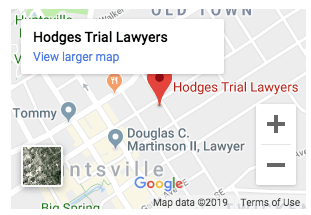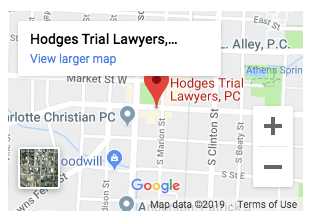Technology has come a long way, and it’s had a significant effect on crash rates around the country. However, technology can’t change one of the biggest contributors to collisions: human behavior. Aggressive driving is a problem across the United States, and it’s only gotten worse in recent years. Learn more about how aggressive driving causes car crashes, and if you’ve been hurt in a collision, call Hodges Trial Lawyers at 256-826-4129 now.
What is Aggressive Driving?
To understand how aggressive driving affects accident rates, you must first understand what aggressive driving is. People often think it’s driving rooted in anger or aggression, and as a result, confuse it with road rage. While road rage is one form of aggressive driving, a person doesn’t have to be malicious or angry to be an aggressive driver. Per the NHTSA, aggressive driving is any behavior that puts others in danger or is likely to result in injury to other people.
Aggressive driving includes:
- Excessive speeding
- Following too closely
- Cutting in front of other drivers
- Running red lights
- Changing lanes without using the turn signal
- Weaving in and out of lanes
- Preventing other cars from changing lanes
These drivers aren’t necessarily driven by anger or aggression, but they are aggressive because they put others in obvious and immediate danger. A number of factors contribute to aggressive driving. The NHTSA indicates that these are just a few factors that make people more likely to drive aggressively:
- Traffic: Dense traffic can make anyone act out of character, but for some, dense traffic leads to unsafe driving choices.
- Anonymity: A lot of people feel anonymous behind the wheel. Even though someone could technically follow them or check their license plate, they know that the odds are low. This leads people to make selfish decisions they may not otherwise make.
- General disregard for others and the law: Those who truly think their needs trump the needs of others or what the law says are unlikely to be convinced to make safer driving decisions.
- Running late: Nowadays, everyone has too much on their to-do list. Work, taking kids to school or activities, volunteering, and running errands is a lot—running late can lead to people acting out.
What the Statistics Say
The Alabama Department of Transportation maintains data on car crashes and what causes them. In 2020, speeding led to nearly 8,000 crashes. Failing to yield right of way led to almost 21,000 collisions and failing to heed a sign or signal caused an additional 5,700. Improper lane change and use contributed to close to 8,000 collisions.
The facts are clear—aggressive driving is a huge factor in tens of thousands of crashes in Alabama every single year. These same errors were also primary contributing factors to fatal crashes throughout the state. A driver’s rush to save themselves a few minutes can literally cost people their lives.
How to Protect Yourself from Aggressive Driving
Keeping yourself and your family safe on the road involves controlling your own actions and your responses to others’ actions. Follow these tips to stay safe on the road:
- Stay calm when provoked: If someone cuts you off, tries to goad you into a street race, or makes a rude gesture at you, remember that people can invite you to an argument—but you don’t have to attend. This is not the time to “teach someone a lesson” or get back at a rude driver. If you escalate, you risk being hurt in an accident or being confronted by a driver who isn’t afraid to get physical.
- Leave early: If you are prone to aggressive driving, recognize that and take steps to avoid putting yourself in situations that bring out that side of you. Leave early when you need to get somewhere, listen to calming music in the car, and try to be mindful of your choices.
- Keep your driving predictable: Driving near the speed limit, using your turn signal, and maintaining a safe distance makes it easier for other drivers to stay safe around you.
Have You Been Hurt in a Crash? Call Hodges Trial Lawyers
If you have been injured by a reckless or aggressive driver, it’s time to find out if you’re entitled to compensation. Schedule your free consultation with our team now by calling us at 256-826-4129 or reaching out online.



